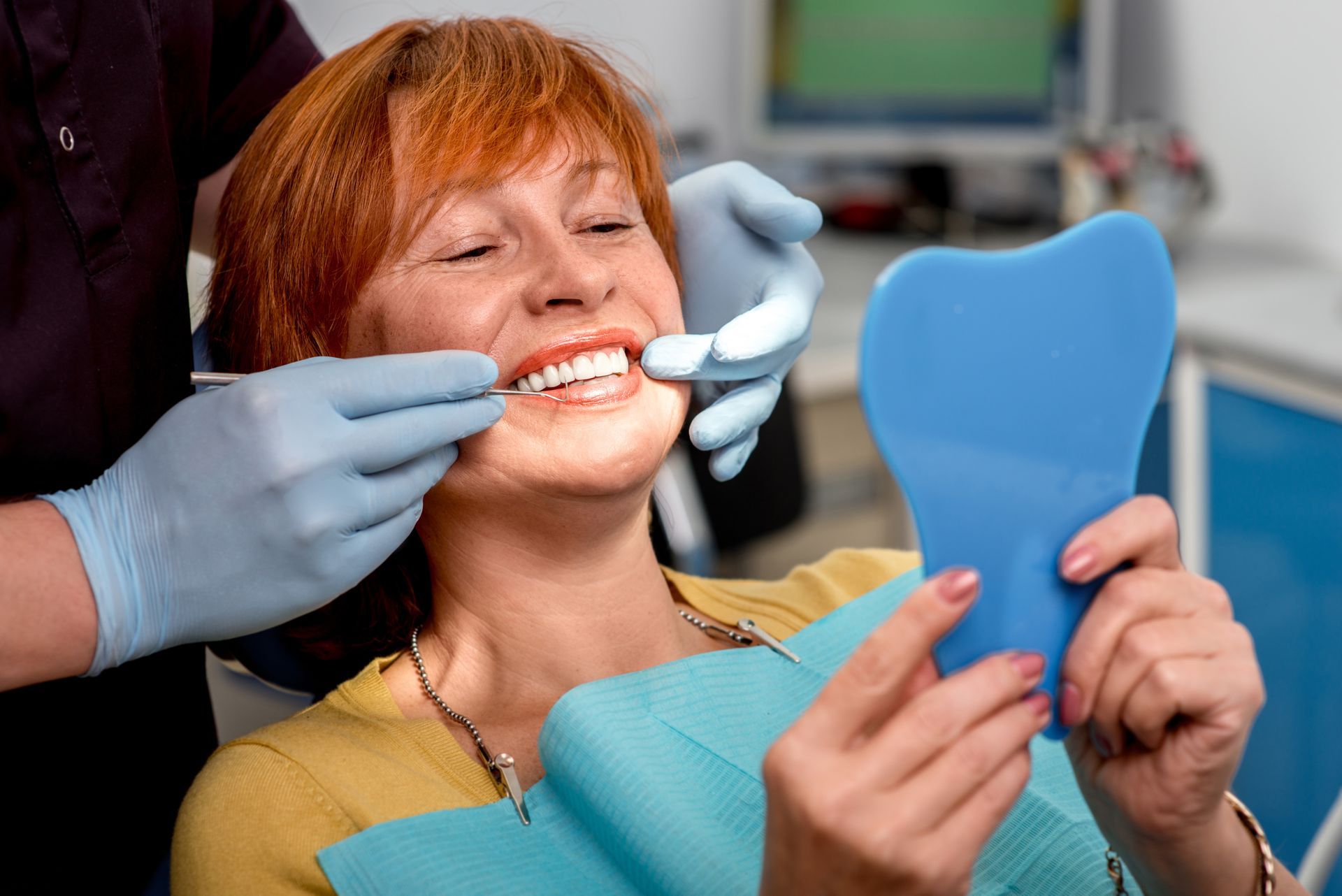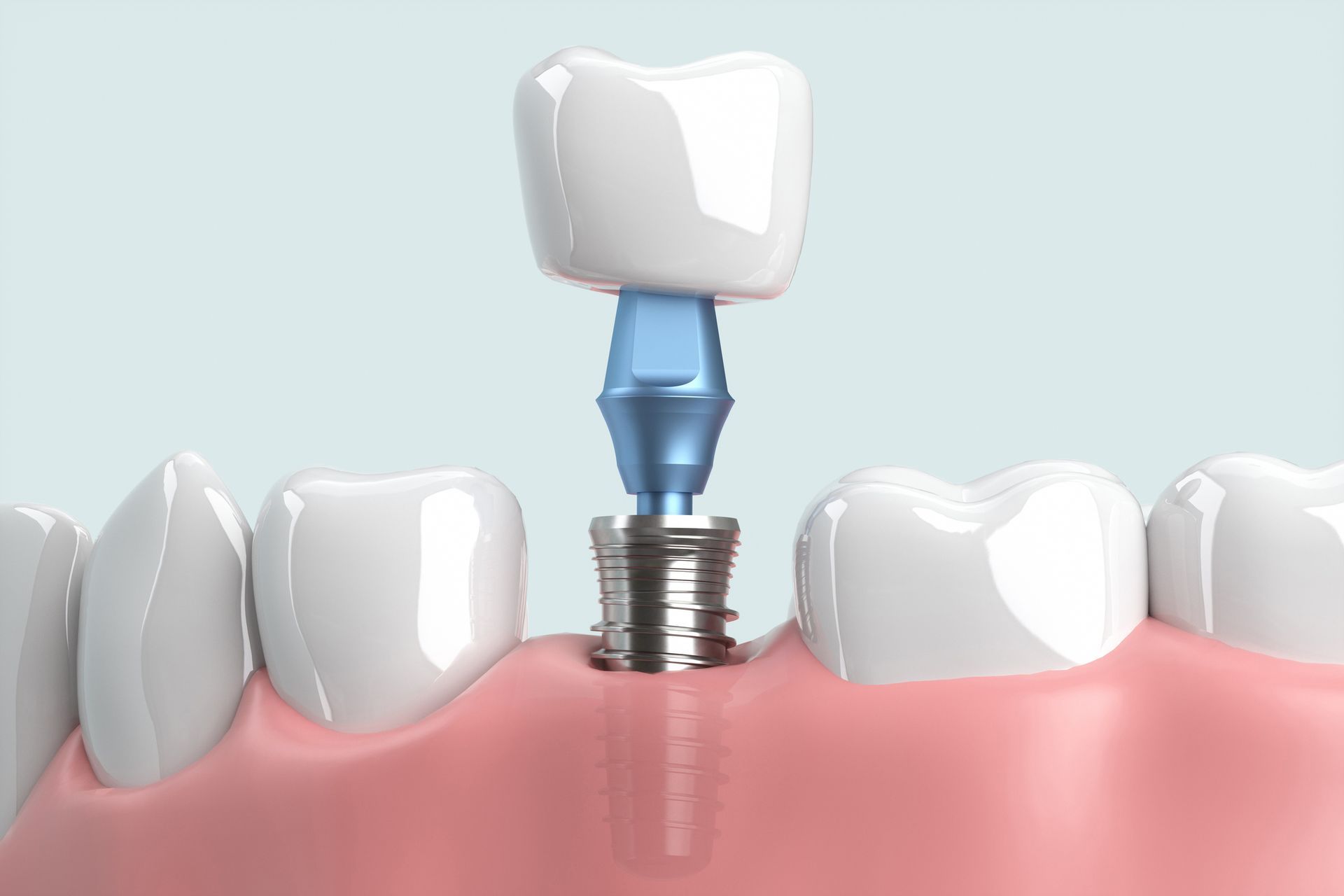4 COMMON ORAL COMPLICATIONS FOR DIABETICS
- By Admin
- •
- 31 Mar, 2021

Uncontrolled diabetes can affect every part of your body, including your mouth. This can lead to pain and complications that increase the risk of tooth decay and tooth loss. If you would like to learn more, check out these four common oral complications for diabetics.
1. Dry Mouth
Brushing and flossing regularly is an ideal way to keep your mouth healthy. However, your body has a natural function for helping to remove debris, sugar, and plaque between brushing: saliva. Normal saliva flow helps to dislodge debris to reduce the risk of irritation to the gums and the hardening of plaque into tartar.
Both types of diabetes, however, can cause dry mouth. While the exact reason is unknown, it is believed that high blood sugar levels in people with uncontrolled diabetes could cause dry mouth. In addition, some diabetic medications cause dry mouth. Regardless of the reason, dry mouth increases your risk of cavities by leaving teeth exposed to bacteria for longer.
Discovering the reason, however, is important because treatment depends on the underlying cause. For example, if high blood sugar is causing your dry mouth, managing your diabetes may help. On the other hand, if your diabetic medication is causing the dry mouth, your options are limited unless there is an alternative medication.
If your dry mouth doesn't improve with changes to medications, diet, etc., your dentist may recommend special products to help stimulate saliva production. You can also stimulate saliva flow yourself by drinking water, chewing gum, using a sugar-free mint, etc.
2. Gum Disease
Diabetes increases your risk of gum disease because it hinders blood flow. Good blood flow is needed for healing. Therefore, irritation from bacteria and tartar may not heal fast enough, leading to gum disease. To add insult to injury, high blood sugar levels promote more bacteria growth in the mouth, continuing the cycle.
If you have too much bacteria in the mouth and gum disease develops, you may experience red, swollen, and tender gums. They may bleed when you brush or floss. As the condition worsens, the infection may spread to the jawbone or cause gums to recede, exposing tooth roots. While mild gum disease may reverse once you get your diabetes under control, severe gum disease may require surgery to treat symptoms like bone loss and gum recession.
3. Thrush
Thrush is a yeast (fungal) infection, and it can affect the mouth. Most healthy adults don't develop oral thrush, but uncontrolled diabetes leads to high levels of sugar in the body. Unfortunately, fungi love sugar, so if you have high blood sugar levels, the fungi thrive, which makes it easy for oral thrush to develop.
If thrush does develop, it can cause pain, white patches on the tongue, redness, bitter taste, and cracked lips. Treatment will be needed to fully kill the infection, and your dentist will likely recommend antifungal mediations, such as lozenges, tablets, or liquids.
4. Burning Mouth Syndrome
As the name suggests, burning mouth syndrome can make it feel like your mouth has been burned. It is often seen in diabetic patients because they are more susceptible to oral infections, and they experience vascular changes that may affect the mouth. In rare cases, neurological problems cause burning mouth syndrome in diabetic patients.
The only real symptom is a burning sensation in the mouth. It often starts in the late morning, gets worse in the evening, and goes away by night. Treatment is mostly about identifying and correcting the underlying cause, such as uncontrolled diabetes.
If you have uncontrolled diabetes, your oral health may be suffering. If ignored, diabetes can lead to severe tooth loss and gum disease. If you would like to learn more, contact us at Bradley Piotrowski DDS, MSD, LLC, today.
AREAS WE SERVE
- Alva
- Ave Maria, Florida
- Bonita Springs, Florida
- Cape Coral, Florida
- Estero, Florida
- Fort Myers Beach, Florida
- Goodland, Florida
- Lehigh Acres
- Lely
- Marco Island, Florida
- Naples, Florida
- Saint James City, Florida
- Sanibel Island, Florida
- Vanderbilt Beach, Florida
AREAS WE SERVE
- Alva
- Fort Myers Beach, Florida
- Naples, Florida
- Ave Maria, Florida
- Goodland, Florida
- Saint James City, Florida
- Bonita Springs, Florida
- Lehigh Acres
- Sanibel Island, Florida
- Cape Coral, Florida
- Lely
- Vanderbilt Beach, Florida
- Estero, Florida
- Marco Island, Florida
This web site is not designed to, and does not, provide medical advice. all content ("content"), including text, graphics, images and information available on or through this web site are for general informational purposes only.
The content is not intended to be a substitute for professional medical advice, diagnosis or treatment. Never disregard professional medical advice, or delay in seeking it, because of something you have read on this web site. Never rely on information on this web site in place of seeking professional medical advice.
Bradley Piotrowski, DDS, MSD, LLC is not responsible or liable for any advice, course of treatment, diagnosis or any other information, services or products that you obtain through this site. You are encouraged to confer with your doctor with regard to information contained on or through this web site. After reading articles or other content from this web site, you are encouraged to review the information carefully with your professional healthcare provider.
CONTACT INFORMATION
Address: 1044 Castello Drive, Suite 202, Naples, FL 34103
Phone:
(239) 263-6003
Email: drbradpiotrowski@gmail.com
Business Hours:
- Mon - Thu
- -
- Friday
- Appointment Only
- Sat - Sun
- Closed













